Breadcrumb
Teaching The Children of Willesden Lane: Choices That Make a Difference
At a Glance
Language
English — USSubject
- History
- Social Studies
- The Holocaust
Teaching The Children of Willesden Lane: Choices That Make a Difference
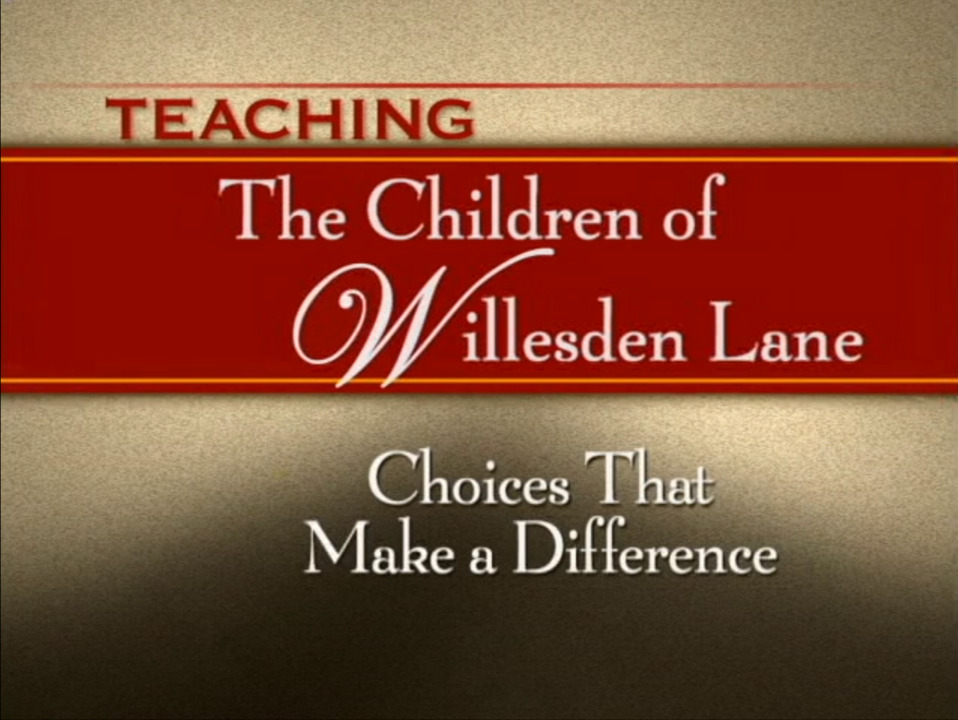
[MUSIC PLAYING]
Class, I want you to meet Steve Becton, who is from the Facing History and Ourselves office here in Memphis. And you know that we use a lot of the materials in this class that they provide for us.
Good morning.
Good morning.
To help us get started today, as you know, we're going to be discussing some pretty serious issues. Some of this is going to be personal, we are going to be drawing on your own personal experiences and your own personal stories. And as you know, in a Facing History classroom, we really try to get to that "ourselves" part, where we don't just study the history, but we try to think about what does it mean to our own lives today.
I always like for Steve to come in because, first of all, the kids are terribly excited about having a new face. And he's so well versed in the Facing History curriculum.
We're going to be asking you to do some reflections on your own experiences that might reveal some of your own personal thoughts and what have you. So in doing that, we really have to have a safe classroom environment to do that in. So what we're going to do is, we're going to build a contract for our time together, a contract saying all of us agree with this is how we're going to conduct ourselves in the class today.
Does anybody know what I mean by that, when I say we have to have a safe classroom environment, that the classroom has to be done in a way that we all can feel comfortable with talking to each other? What do I mean by that? Young man.
You mean we have to be respectful to each other and listen to what they have to say.
Absolutely.
When you start thinking about race, and religion, and personal identity, people's own histories and their stories, those are very hard to discuss issues with people that you don't know very well. So that contract is to set up group norms for how are we're going to behave in our conversation with each other. That really begins to provide a safe environment to allow these difficult conversations to come forth.
What I would like to do with you today is just talk a little bit about some elements of what you've been reading. We're going to think about some tough issues, like the decision for Ms. Juror to send Lisa off on the Kindertransport. And then, we're going to think about what's going on in Germany history at this time.
We're in the '30s in Germany. We want to think about what's happening to German citizens, what's happening to the Jews in Germany, what choices do they have, what choices did they make when they were put under this pressure of being second hand citizens.
When we explore history the way Facing History does, students begin to see that what happened in Germany, for example, was a collection of choices that everyday German citizens made. It was about individuals, normal everyday people making choices about how they would treat their neighbors.
Think with me about what's happening when Lisa's father comes home, right?
It was the night of Kristallnacht. SS stormtroopers everywhere, and they were abandoning everyone stores and throwing children down, and making men scrub the ground.
We had the night of Kristallnacht, and this obviously became a turning point, right? The families knew we have to do something now. But how did it come to that point, though? What was happening in Germany even before this night as it concerns the Jews?
They were changing things piece by piece so that the Jews wouldn't know what's going on. And they was changing street names and everything, taking away their privileges.
They were changing laws, right? What were some of the things that was happening in those changes of laws?
When they weren't able to be at the park or nothing. They couldn't go like-- they had to stop going to piano lessons if their teacher was non-Jewish, and stuff like that.
Can you imagine if one day, just out of nowhere, no more students and African American students can go to the movie theater. If they suddenly said, no African Americans in the park. You can't go to the movie theater. We're going to change the name of Dr. Martin Luther King Boulevard to something else because we don't want any African American names on the streets, take away their businesses, what would you be feeling and thinking?
I think everybody would want to know why. It's not fair. And why we don't have rights to do anything.
Very good. Wouldn't you wonder what is going on here? Wouldn't you want to know why?
So this is where the Jews of Germany were. They found this hard to believe. Remember, they were loyal German citizens. They worked in Germany. Jewish kids, right along with other kids, were in school together like you are today. And suddenly, all these rights were being taken away. So here we are at that night of Kristallnacht, and now, this family is faced with this decision about what should we do, how should we respond?
Well the mother, she had a difficult choice because she had to send one of her three children away. And she had three children, all three girls, and they had a young one, a middle one, which was Lisa and an older one, which was over 17, so she couldn't send her. And she didn't want to send the young one, so she had to send Lisa.
How many of you all have more than one sister or brother? Many of you all do, right? OK, let's say that you had to make a choice, right? You had to make this choice that one of your sisters and brothers, you're going to have to send away, never to see again. And there's your choice. Now, you might have one that you would like to send away for a little while, but never to see again, OK? How would feel about having to make such a choice?
I would feel sad because they're family. I wouldn't want to send them away, even though, sometimes, they get on my nerves, but they're family, and I known them for forever. And if I had to send them away, I would-- I would probably send myself instead of sending them away.
You would rather send yourself away. Put yourself in Lisa's shoes. What are you thinking about your parents' choice? You, yourself, how would you feel in that situation?
I think that Lisa would probably think that her mother or her father didn't love her because they're sending her away somewhere and that they didn't feel as though she deserves to be in the family since they were sending her away to some other place, and that they didn't want her to be at home.
The reading suggests that Lisa even understood why she was going, but, still, she could have felt some feelings of abandonment and not being wanted because she was being sent away. Anybody else want to relate to how you would be feeling if you were in Lisa's shoes.
I feel that I would be understanding because Lisa and myself are at the point of age that we can understand the decisions that our parents make. And Lisa understood that her sister was too old, and Lisa knew that her younger sister was too young to even take care of herself. So Lisa knew that she could take care of herself because of her age.
And she knew that she would be-- I would probably know that I would be-- I would be scared, but I would be understanding. And I know my parents-- I will always know that my parents love me, and they wouldn't be abandoning me. But I would trust my parents' decision for them to be sending me. And I would trust whatever they're doing.
What about some of the rest of you all on this? Would you feel abandoned? What other kind of emotions might you feel in this situation?
I would feel sad that I would have to leave my parents, the people who raised me, taught me everything I know. But in a certain way, I would feel overjoyed because they love me enough to recognize that they can't leave me here-- they can't let me stay here. They had to, at least, let one of their children live. And they made the decision to send me.
The students in this class, they related powerfully to the difficult decision of Lisa's parents to send her away. Personal experiences really connected them with what was happening in this story.
What I want you to do right now is take out your paper, and I want you to think about if you know someone who has had to make a difficult choice. I want you to think about that choice from the standpoint of who it affected. It needs to affect someone besides just them. And if it happened to you, you can share that as well.
I think it's really easy for these students to see the emotions that are carried in this book. Middle school students, many times, work on emotion, and learning is connected through emotion. So if we can see an emotion that a main character has, that our children have also experienced, then we can attach learning to that.
Raise your hand if you feel comfortable sharing what you've written. Chris, would you read to us what you wrote.
Yes, ma'am.
I had the choice of either living with my mother, father, or grandmother. It was hard because I loved them all so much. I chose to live with my grandmother because she was old. She was sick. I was going through a great depression. I had decided that I would love myself if no one else will. After that, I became happy with myself.
That's an excellent paragraph. Did your parents support your decision?
Yes, ma'am.
So it made it maybe a little easier because they understood why you wanted to live with your grandmother.
Yes, ma'am.
OK, good. Charles.
People in New Orleans have to make a choice on leaving with the soldiers or anyone else. They have a choice on taking people's things or just going to someone else's houses, stuff like that.
OK. He's talking about the situation that occurred in New Orleans, where so many people were unable to get out, and where they made the choice sometimes to stay, thinking that things would be better. And what we wound up with were people that lost their lives as a result.
You can just sense that they were really thinking about, if I were in there in that situation, how would I respond? And those were very important lessons. It's very difficult for students to wrap their heads around 6 million Jews dying in the Holocaust or 10,000 kids going away on the Kindertransport.
But when they can hear the story of one family, of one child's experience, they can better relate it to their own lives. They begin to then connect with, then, how am I treating my classmates? How am I treating my teachers? How am I treating my parents? So it's watching them make that personal connection. That's real transformative and powerful.
Teaching The Children of Willesden Lane: Choices That Make a Difference
You might also be interested in…
Watching Who Will Write Our History
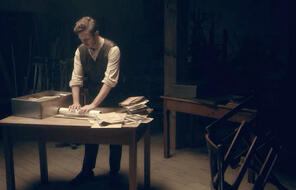
For Educators in Jewish Settings: Teaching Holocaust and Human Behavior
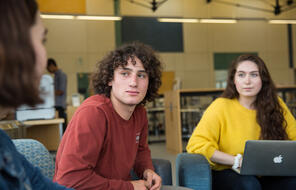
Introducing Evidence Logs
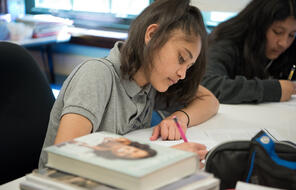
Adding to Evidence Logs, 1 of 3
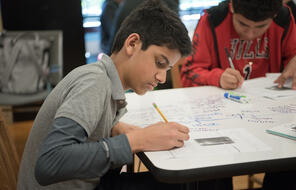
Adding to Evidence Logs, 2 of 3
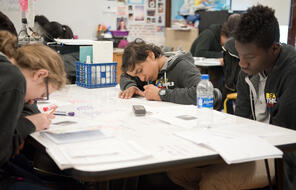
Adding to Evidence Logs, 3 of 3
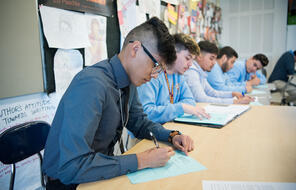
Refining the Thesis and Finalizing Evidence Logs
Teaching Holocaust and Human Behaviour (UK)

Jewish Theological Dilemmas After the Holocaust

The Weimar Republic
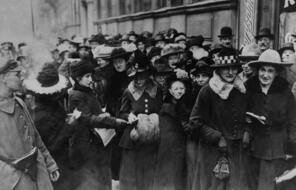
Youth and the National Community
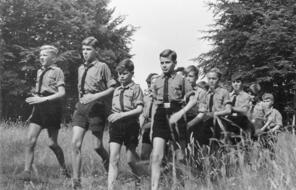
Spanish Translations from Holocaust and Human Behavior


